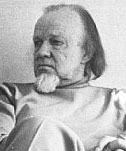
 | |
| home | search | email list | feedback | submit a quote |
| The Church Before the Watching World - A Practical Ecclesiology |  | |
| Summary "Don't think. Just let your emotions go and experience Jesus." -- "That's fine for you, but my God isn't like that." -- "The Bible has errors in it, but God can still speak to us in it." -- "I know they're opposites, but they can both be true." -- "Don't try and understand it, you just have to have faith." Do any of these phrases sound familiar? This is what is being taught in large sections of the church today. They may use different words, but the meaning is the same. In The Church Before the Watching World Schaeffer explains where this thinking came from, how it crept into the church and what it's consequences are for "true truth" and our actions. If you're wondering why the church just doesn't seem to make sense today or refuse to blindly "experience God" without your mind, this is the book for you. Commercial Availability of Work The Church Before the Watching World (paper - out of print) The Church at the End of the Twentieth Century (paper - incl. The Church Before the Watching World) The Complete Works of Francis Schaeffer (paper) The Complete Works of Francis Schaeffer (Windows CDROM) Quotes From The Book It is interesting, but not surprising, that from the time theology became naturalistic, it has tended simply to follow the curve of secular naturalism. It really says nothing different from the surrounding consensus; whatever the surrounding nontheological consensus is, theological liberalism has conformed to it. If we were to draw a graph giving the curve of the shifting secular naturalistic consensus in red ink and then the teaching of liberal theology in green ink, we would find almost identical curves, with the theological liberalism simply following a few years later and using religious terms instead of secular ones. Liberal theology uses different terminology, and yet says the same thing just a short time later. It has a naturalistic perspective that is totally opposite from the perspective of historic Christianity and the Bible. Basically, the biblical perspective is this. First, there is an infinite-personal God who exists and who has created the external universe, not as an extension of His own essence, but out of nothing. Something of the nature of this created universe can be found out by reason because that is the way the infinite-personal God has created it. The universe is neither chaotic nor random, but orderly. Cause and effect is real, but this cause and effect is not in a closed system, but rather in an open system -- or, to say it in a different way, it is a cause-and-effect system in a limited time span. Though this universe has an objective existence apart from God, it does not operate solely on its own; it is not autonomous. God is not a slave to the cause-and-effect world He has created, but is able to act into the cause-and-effect flow of history. Second, God has made man in His own image, and this means, among other things, that man too can act into the cause-and-effect flow of history. That is, man cannot be reduced to only a part of the machine; he is not an automaton. Third, not only can God act into the world, but He is not silent; He has spoken to men in the historic, space-time situation. The Bible and Christ in His office of prophet have given a propositional, verbalized communication to men that is true about God, true about history, and true about the cosmos. This should not take us by surprise, for if God has made man in His own image and has made us so that we can verbalize facts propositionally to each other on a horizontal level of communication, then it is natural that the infinite God who is personal would also communicate vertically to man in the same way. Of course, we must be careful to make a distinction here. Although God has not given us exhaustive knowledge (only He is infinite), He has given us true knowledge (what I have often called true truth)-- true knowledge about Himself, about history, and about the cosmos. Fourth, the universe as it is now is not normal; that is, it is not now as it was when it was first created. Likewise, man is no longer as he was when first created. Therefore, from Godís side there is the possibility of a qualitative solution for man as he is now and for man's cruelty, without man ceasing to be man. (Francis A. Schaeffer, The Church Before the Watching World, Ch. 1)
It is crucial that we understand the situation here. The areas of reason and nonreason are held to be completely apart. Picture the line between reason and nonreason as a solid concrete wall with barbed wire in the middle charged with 10,000 volts of electricity. Then you can begin to understand how there can be no interchange between the lower story with reason which leads to despair and the upper story of hope without reason. Everything that is worthwhile for human life ó meaning, values, love, etc. -- Is in the area of nonreason. In what we may now call the new humanism, we have a semantic mysticism with no facts.
Unless we see the new liberalism as a whole and reject it as a whole, we will, to the extent that we are tolerant of it, be confused in our thinking, involved in the general intellectual irrationalism of our day and compromising in our actions. (Francis A. Schaeffer, The Church Before the Watching World, Ch. 1) © 1999 Rational Pi, all rights reserved | ||